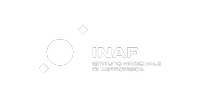ASTRONET
Abstract: Improved cooperation has brought European astronomy to front player, notably through such organisations as ESO and ESA. To continue to excel in a competitive world, Europe must also coordinate national resources in the long term and across borders between disciplines and nations.
Accordingly, the goal of ASTRONET is to establish a strategic planning mechanism for all of European astronomy. Established as an ERA-NET in 2005, ASTRONET developed its "Science Vision for European Astronomy" (2007), followed in 2008 by an "Infrastructure Roadmap". Both documents are very comprehensive: they cover all scientific topics in astronomy, from the Sun and Solar System to the limits of the observable Universe, and observation tools from the radio domain to gamma-rays and particles, on the ground and in space; they discuss theory and computing, outreach, training and recruitment of the vital human resources; they cover all of Europe as ASTRONET aims to engage all astronomical communities on the new map of Europe.
Building on those notable achievements, our ambition now goes even farther as we proceed to the implementation stage, a very significant new step towards increased coordination of the European resources for astronomy. ASTRONET's objectives for 2011-2014 are fourfold:
- To establish a permanent mechanism for planning and coordination in European astronomy.
- To follow-up and implement the Roadmap by building the new facilities that are needed to reach our scientific goals while optimising existing programmes in both scientific and financial terms – not only new joint projects at ESO or ESA, but a range of national resources as well.
- To narrow the scientific and – in particular - technology gaps between different European countries.
- To establish a regularly updated data base with key information on the financial and human resources for astronomy in all European countries, as well as on the structure and governance of astronomical research in each country.
Dettagli tecnici:
- Struttura INAF: Dipartimento Progetti
- Bando: INFRA-2010-3.1
- Riferimento: 262162
- Inizio: 01/01/2011
- Durata: 48 mesi
- Coordinamento: CNRS/INSU (FR)

